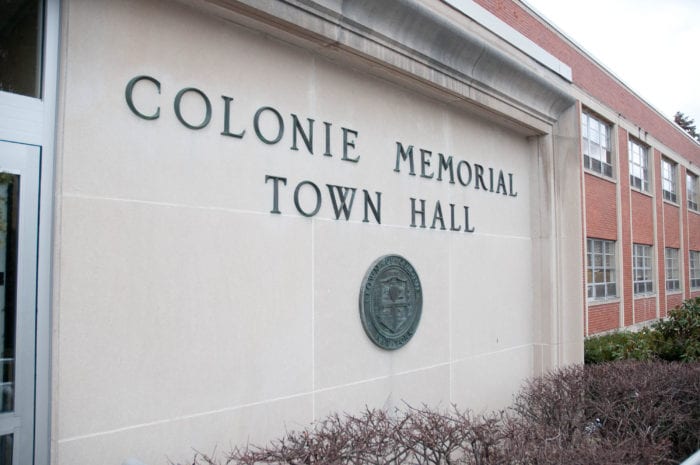COLONIE — Thanks to a stronger than anticipated share of county sales tax revenue, the town is now proposing to drop the tax levy increase from 7.5 percent to 5.48 percent.
“We always look at sales tax conservatively and responsibly,” said Supervisor Paula Mahan. “When it is lower than expected we don’t get hurt too bad and when it is higher we pass that along to the taxpayers.”
The tax levy increase is still above the state imposed 2 percent tax cap and a super majority of the Town Board, or five votes, are needed to first pass a local law bypassing the tax cap and then to approve the budget. Based on state formulas, the 2 percent cap actually means a 3.45 percent increase in Colonie.
While the percentage does seem high, the increase to the owner of an average home in Colonie was about $3.55 per month. That will shrink to $2.43 per month if the budget is passed as is.
The budget translates to a tax rate of $3.90 per $1,000 of assessed value. Right now it is $3.27 per $1,000 of assessed value and before the sales tax adjustment it was going to $4.27 per $1,000 of assessed value.
There is a public hearing on the local law necessary to allow the board to override the tax cap slated for Thursday, Oct. 25, at Town Hall.
Sales tax is 8 percent in Albany County with 4 percent going to the state and 4 percent staying with the counties. All the sales tax on items sold within Albany County is tossed in a pot of money and distributed to the individual municipalities, with the county getting a share, based on a pre-determined formula.
Since budgets for any given year are required prior to the year even starting, the sales dollar amounts are estimates and can vary wildly depending on a number of factors outside of a municipality’s control, not in the least the state of the national economy.
“People are working and people are investing and it shows,” Mahan said. “We’ve had good re-development like the [Latham Circle] mall, and where Fresh Market is and the shops that were going down the tubes. They live here they work here and it’s going well for them and we are benefitting from that.”
The proposed $96.6 million budget proposed by Mahan increases spending by 5.8 percent, or $4.8 million. That overall allocation will not change but, if approved, the revenue side will shift to reflect the increased sales tax projections.
The majority of the increase is due to salary increases paid to employees of the town’s seven unions. Six of the seven unions — with only those working in EMS — reached a deal with the town that included what averages out to a 1.25 percent raise over the four-year life of the contracts. Since many employees did not take an increase in 2018, a 2.5 percent raise will kick in next year.
Health care benefits are also projected to increase by $900,000 next year and there are some new hires like a School Resource Officer and a new position in the Planning Department and a new compliance control officer. Debt service will also increase from $9.2 to $10 million.
Earlier in this budget cycle, Mahan and the Town Board volunteered to forgo their raises which are in line with union increases. The overall dollar amount is nominal in that Mahan’s salary would have increased from $123,006 to $126,081 and the deputy supervisor’s salary, a position currently held by Town Board member Linda Murphy, would have gone from $21,918 to $22,466. Each of the five the board members would have seen their salaries jump from $21,479 to $22,016.
Mahan previously said it equals about .02 percent.
The public hearing will take place shortly after the regularly scheduled Town Board meeting starts at 7 p.m.



